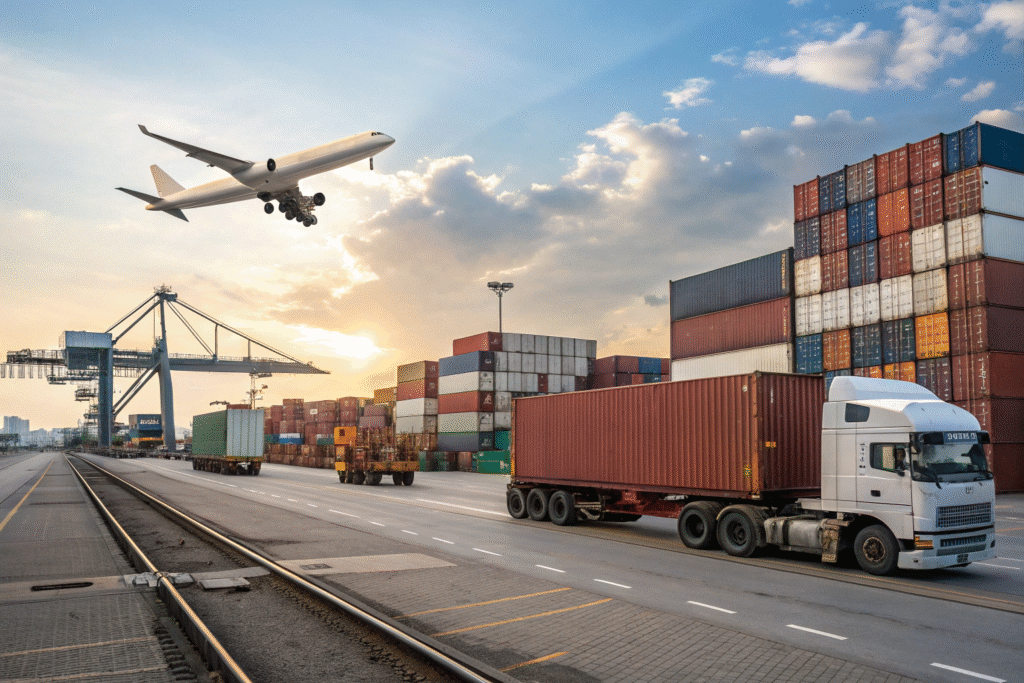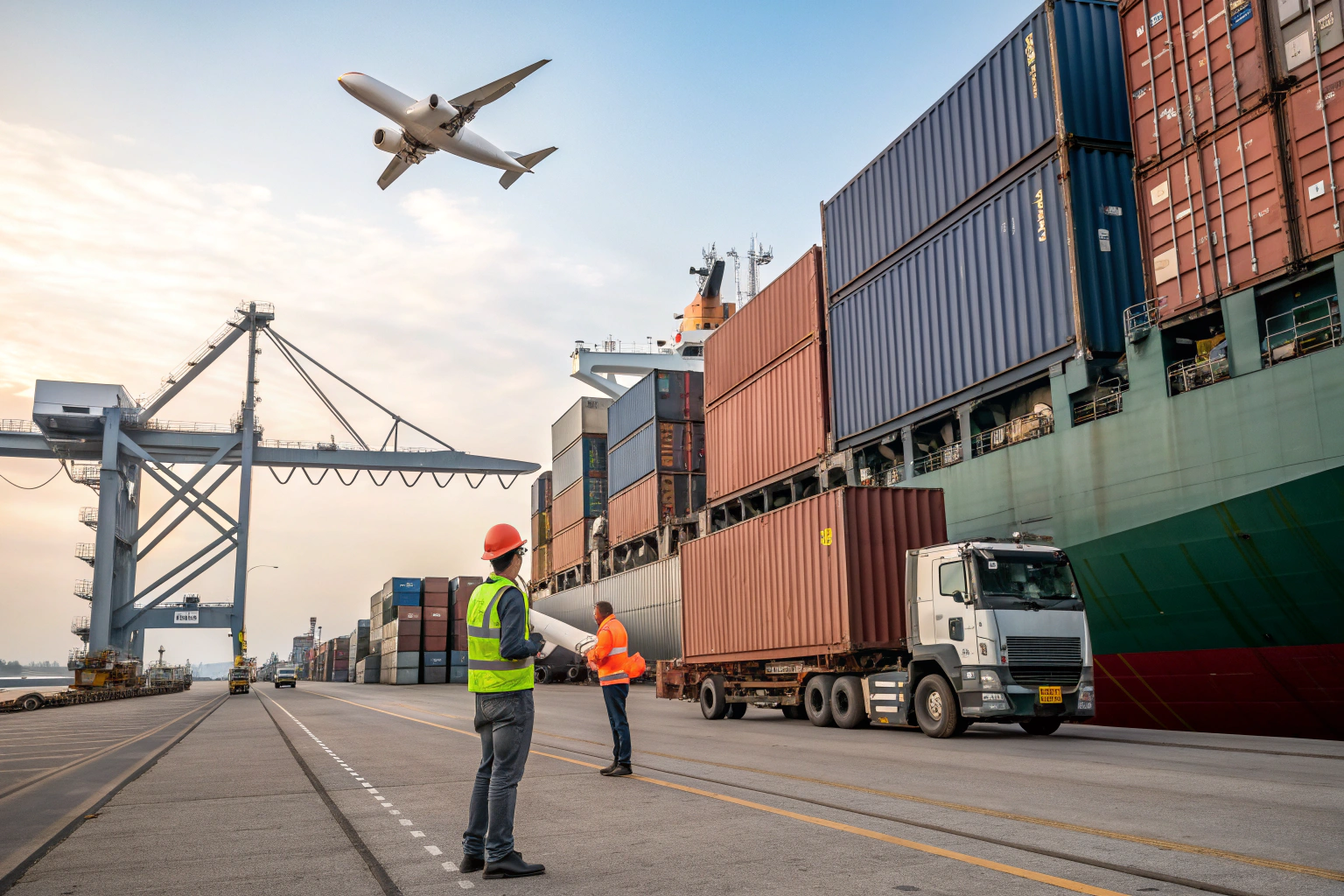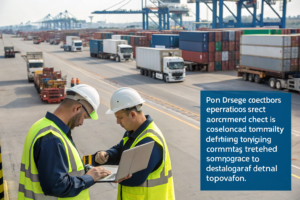When importers and exporters start comparing logistics options, they often notice that freight forwarders can offer shipping rates lower than those published by carriers. This creates confusion and raises questions: why would an intermediary charge less than the transport provider itself?
The explanation lies in how the logistics industry is structured. Freight forwarders consolidate shipments, negotiate long-term agreements, and reduce hidden costs for clients. These practices give them a unique advantage.
In short, freight forwarders secure better rates because they operate at scale, leverage their industry relationships, and simplify the shipping process for businesses of all sizes.
Based on my years of experience in both sea and air freight between Asia, Europe, and the United States, I can confirm that forwarders consistently combine competitive pricing with reliable service. Let me explain why this is possible.
How Do Freight Forwarders Negotiate Lower Shipping Rates?
Freight forwarders manage shipments for many companies at once. Instead of moving one client’s goods, they pool the cargo of multiple clients into larger volumes. This collective volume creates strong bargaining power with carriers.
In other words, forwarders negotiate like wholesalers, while most shippers negotiate like retail buyers.

Why does volume matter so much?
Carriers depend on filling their ships to capacity. A forwarder who can guarantee weekly shipments of multiple containers holds more influence than a small business that ships occasionally. As a result, carriers reward forwarders with contract rates that are far lower than what most companies could obtain on their own.
Can smaller shippers ever match these deals?
Smaller businesses rarely reach the volume needed for direct discounts. However, they can benefit through consolidation. Forwarders group shipments of different clients—such as clothing, electronics, or furniture—into one container. Each client pays only for their share, reducing individual costs. This is known as LCL (Less than Container Load).
For a detailed explanation of consolidation, Investopedia outlines how pooling demand reduces costs. Additional examples are available through Freightos, which provides real-world freight scenarios.
Do Forwarders Offer More Than Just Price Advantages?
Price is only one advantage. Forwarders also provide support services that carriers typically do not offer. These include customs clearance, documentation, and inland delivery arrangements.
This means clients save not only on freight charges but also on hidden costs and operational risks.

What hidden costs can forwarders reduce?
Carriers focus solely on transport. They do not manage customs compliance, duty payments, or last-mile delivery. If a shipper handles these tasks alone, mistakes can lead to fines or delays. Forwarders bundle these services into their operations, minimizing risks. Guidance from U.S. Customs and Border Protection illustrates how complex compliance can be, making forwarders’ expertise valuable.
How does reliability save money long-term?
Delays can be more damaging than high freight costs. For example, late shipments in fashion or retail often mean missed seasons, lost revenue, and wasted inventory. Forwarders maintain relationships with carriers and port officials, which helps them secure space in peak season or find alternative routes when disruptions occur. Reports from Journal of Commerce highlight how strong forwarder-carrier partnerships help shippers avoid costly delays.
Why Are Forwarders More Flexible Than Carriers?
Flexibility is another key advantage. When shippers work directly with carriers, they are tied to specific routes and schedules. By contrast, forwarders cooperate with multiple carriers across different modes of transport, giving them the ability to adapt quickly.
This flexibility allows forwarders to provide solutions that carriers alone cannot.

Can forwarders switch carriers if there are delays?
Yes. If one shipping line faces congestion or equipment problems, forwarders can move cargo to another carrier. This ensures continuity and protects clients from unexpected disruptions. Shipping updates from Maersk demonstrate how unpredictable global logistics can be, making forwarder flexibility even more important.
Do forwarders provide multi-modal solutions?
Yes. Carriers usually specialize in either ocean or air. Forwarders, however, integrate multiple modes into a single service. For instance, a container may travel by sea to a U.S. port, continue by rail inland, and then finish with truck delivery. This door-to-door model is efficient and cost-effective. More details can be found in IATA, which explains multimodal strategies.
Is It Always Cheaper To Use A Forwarder Instead Of A Carrier?
While forwarders often deliver better rates, exceptions exist. Large corporations with high shipping volumes can sometimes negotiate directly with carriers and secure favorable deals.
In certain cases, direct carrier contracts may be the more cost-effective option.

Who should consider direct carrier contracts?
Enterprises that ship thousands of containers each year have the scale to negotiate effectively. For them, bypassing forwarders can sometimes reduce costs. However, for most small and mid-sized businesses, forwarders still provide the most competitive option. Insights from Sea-Intelligence explain how market behavior affects these negotiations.
Are there cases where carriers outperform forwarders?
Yes, in specialized shipments such as oversized machinery or hazardous goods. Carriers may offer more direct handling for these categories. Even so, forwarders often assist with permits, insurance, and compliance, which remain complex. Regulations from the International Maritime Organization show why expert support is necessary in such cases.
Conclusion
Freight forwarders usually secure better rates than carriers because they negotiate based on volume, include value-added services, and provide flexibility. These strengths make them the preferred choice for small and medium businesses shipping internationally. Large corporations may sometimes bypass forwarders, but for most importers and exporters, forwarders combine cost savings with reliability.
For businesses moving goods from China to the U.S. or Europe, partnering with a forwarder means better pricing, fewer hidden costs, and stronger protection against delays. This combination explains why forwarders remain the backbone of modern global trade.









